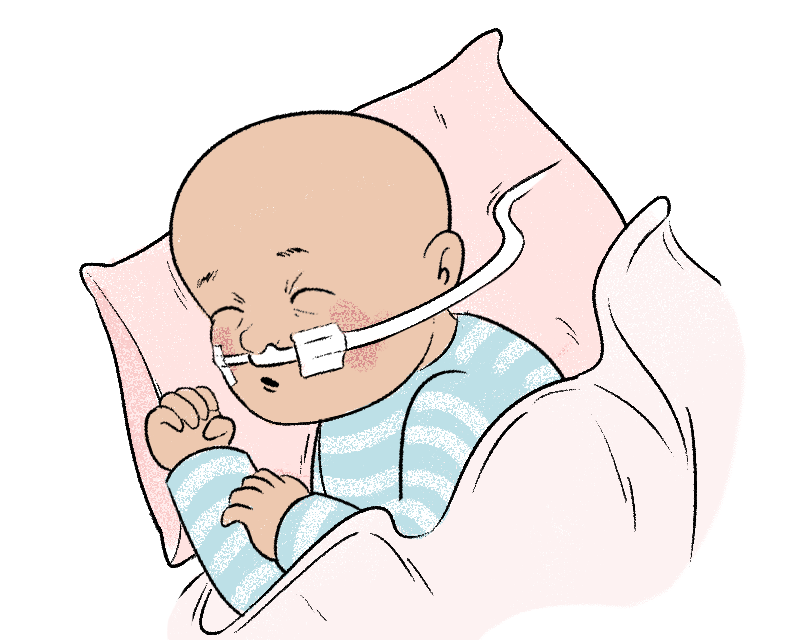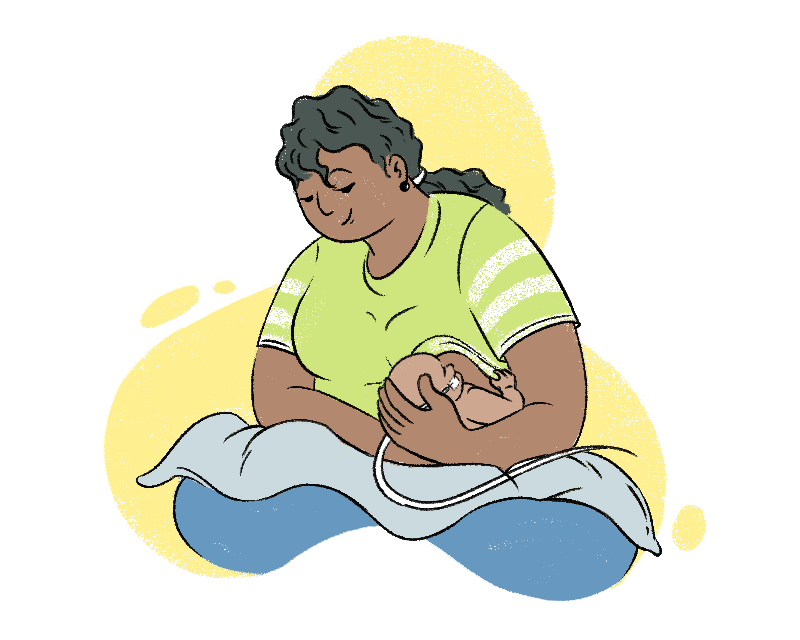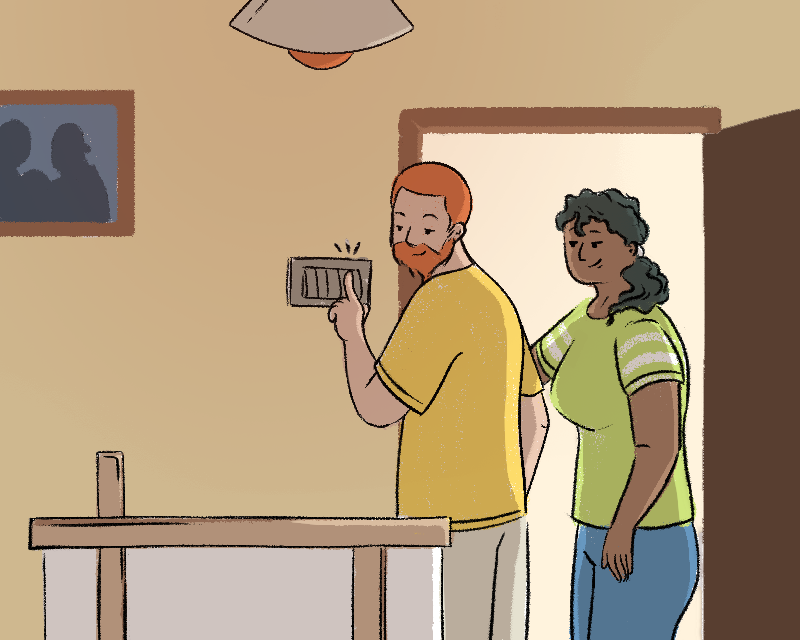Caring for a preterm baby brings special challenges, along with intense, heart-lifting joys. Bringing your premature baby home can feel overwhelming at first.
Give yourself permission to take as much help and support as you can possibly get in the early weeks, as you and your little one adjust to your new life together.
Premature babies, or babies born before 37 weeks, tend to have different needs than full-term babies. A premature baby’s brain and body will need more time to develop.
And because sleep largely depends on brain development in order to set sleep-wake cycles, it makes sense that premature babies’ sleep will not be regulated as quickly as a full-term baby’s might.
But as any parent of a premature baby knows, preterm infants are born fighters, and every milestone achieved is a cause for celebration — so savor every one of those tiny fist-bumps.
Here’s more about what to expect from premature babies and sleep, along with additional information on nutrition, development, and more.
Premature baby milestones for sleep
While every baby is different, of course, The American Academy of Pediatrics (AAP) explains that most of the time, a premature baby will take longer to reach certain sleep milestones, such as sleeping longer stretches at night.
How much sleep a premature baby gets and how long it will take them to sleep longer stretches at night also depends on how premature they are — for instance, babies born at 34 weeks or earlier may have even more dysregulated sleep.
While some full-term babies may start sleeping through the night — defined as 6-8 consecutive hours per night — as early as 4 months old, preemies will most likely need longer to reach that milestone. A premature baby will most likely not sleep through the night until they are 6 or 8 months.
Premature babies will also usually have lighter and shorter sleep than full-term babies, even though they may sleep more hours in a 24-hour cycle. You might see more “cat naps” and dozing from your premature baby.
But take heart: As they grow older, your preterm baby’s sleep patterns will slowly change, and eventually you’ll see longer and deeper sleep as part of their sleep cycle.

Cradlewise Smart Crib
Smarter Sleep for Your Baby
An award-winning crib—loved by parents, approved by experts.
0 to 24 months of use
Automatic soothing
Built-in video & sound machine
AI-powered sleep insights
Customizable soundtracks
Get 2 extra hours of sleep nightly
What’s going on in your baby’s brain?

A premature baby’s brain is still very much in progress with developing the ability to sleep.
Certain key developments in the brain, such as the ability to know day from night (also known as the circadian rhythm), as well as certain brain patterns that are conducive to longer sleep, are still in the works inside your baby’s brain.
In general, the earlier your baby is born, the longer you can expect it to take for these developmental milestones to be reached.
Premature babies will also have higher growth needs than full-term babies, which means that they will need to eat more frequently, which also interrupts their sleep.
Their survival depends on it, so those frequent nighttime wake-up calls are crucial, while not always convenient for you!
There are also other challenges a premature baby’s brain will have, such as:
- Less ability to regulate their temperature, meaning your baby could get overheated or too cold, potentially interrupting their sleep
- Less ability to self-soothe
- Lowered levels of spinal cord and brain development that control breathing, which could lead to sleep apnea if they are younger than 36 weeks old
- Reflux, which will make laying down uncomfortable
- Trouble regulating nutrients
Some babies may need special interventions to help with these challenges, such as an oxygen monitor to check their breathing and alert you of a problem, or even an apnea machine to help regulate their breathing.
While these helpful interventions may interrupt your baby’s sleep in the short term, there’s good news, too: Many babies outgrow some of the specific challenges of prematurity, such as sleep apnea, by the time they would have been 36 weeks gestation.
If your premature baby needs to spend time in the NICU, they may need even more time and support to develop proper sleep-wake cycles.
A 2020 article in the Journal of Nursing for Women’s Health explains that all the stimuli from the NICU — such as bright lights, noises, and being interrupted for tests and assessments — can disrupt a premature baby’s ability to sleep for several weeks even after being discharged.
Give them time and be consistent with bedtime and sleep routines to help establish healthy sleep patterns.
If your baby has any special needs that may necessitate a different sleep routine at home, be sure to talk to your baby’s doctor or care team so you know exactly the best way for your baby to sleep at home too.
How much should a premature baby sleep?
Unfortunately, there isn’t really a typical sleep pattern or recommendation for premature babies, because they are all so different.
How much a premature baby might sleep depends on many different factors, such as how early they were born, if they have any medical needs, and if they are in the NICU or at home.
In general, however, you can expect that your premature baby will sleep a lot, but in shorter increments and usually not in a deep sleep. Sleep will improve as they grow older — so hang in there.
- Total hours of sleep: May be as high as 22 hours
- Wake windows: 20-30 minutes
- Number of naps: Constant cat naps!
Sample premature baby sleep schedule
Because premature babies’ sleep is so unpredictable for the first months, there isn’t really a recommended preemie baby sleep schedule.
At least for the first weeks of life and until your baby reaches closer to 4 months adjusted age, you can probably expect a “non-scheduled schedule” that looks something like this:
Eat, sleep, diaper change, and repeat
If you can, try to get help from a babysitter, friend, or family member who can help you catch up on your own sleep, and trade on and off with a partner if you have one.
Soon enough your baby will reach an age where their sleep can start to become more regulated — but until then, make sure you have a support system so you can get some rest, too.
Premature baby feeding tips

Feeding your premature baby may come with some additional challenges.
For instance, if your baby is born early enough, they may not have developed a rooting instinct (when babies turn towards a stimulus and automatically open their mouth to eat) or sucking reflexes, which can make eating harder.
Depending on how early your baby was born, it’s also possible that your breast milk might not be in full production mode yet, and you might have to supplement with donor breast milk or formula.
Breast milk contains higher levels of the fats and nutrients that preemies rely on, and can also help reduce the risk of certain digestive issues that premature babies are at a higher risk for.
So whenever possible, the AAP suggests that premature babies should be fed human breast milk over formula. Work with your baby’s care team and consult a lactation consultant who can help with your baby’s specific feeding needs.
Here are some additional preemie feeding tips:
- Do skin-to-skin feeding whenever possible. Not only will skin-to-skin help promote your baby’s development and stimulate their feeding reflexes, but it also comes with many other benefits for premature babies, such as helping with their growth, temperature regulation, and brain function.
- Pump breast milk often if you’re nursing. Your preemie may not eat as much right now, but it’s important to keep your milk supply up so it is ready when your infant “catches up.”
The medical journal Pediatrics recommends pumping breast milk or feeding your baby for a total of 8 times per day.
- Use a feeding system if you need to. Some preemies will need to be tube fed or use a lactation system even once they’re discharged from the NICU.
Be sure to ask lots of questions before leaving the hospital so you can continue to use feeding systems at home.
- Buy bottles and nipples specifically for preemie babies. Premature babies can’t handle the same flow speed as full-term babies, so be sure to purchase specific bottles and nipples designed for preemie babies that will slow down the flow of milk.
For instance, Dr. Brown’s slow-flow nipples are very popular with preemie parents.
- Ask your doctor about upright feedings. Because premature babies can struggle more with reflux, it may be helpful to talk to your baby’s pediatrician about what position is best for feeding your little one.
For instance, some premature babies may do better in an upright recline position, rather than all the way on their backs.
How to help support your premature baby’s sleep

If there’s one thing to understand about premature baby sleep, it’s that there may be no rhyme or reason to it at first. And that’s very normal! However, there are still a few tips you can keep in mind:
Keep lights dim
Avoiding bright lights at night is helpful for all kids’ sleep (and even adults!), but it may be especially important for premature babies.
Preemies don’t have the ability to regulate as well as older babies and things like sudden bright lights could cause them to become easily over-stimulated and delay the development of their circadian rhythm.
The AAP advises sticking to minimal and soft lighting during night feedings to help your little one learn the difference between night and day.
Create a sleep routine very early on
Along with keeping lights dim at night and when you’re trying to put your baby to sleep, the AAP also suggests creating a specific sleep routine very early on, even with your premature baby.
The sleep routine may not “stick” at first, but that’s okay — the important thing is that over time, your baby will associate those habits with sleep.
A consistent sleep routine for your premature baby will also help when your baby goes through sleep regressions that may hit at different times than for a full-term infant.
Stick to the routines and habits you’ve already established and you’ll both get through those setbacks a little easier.
To create healthy sleep habits and routines, try to follow the same steps every time you put your baby down to sleep. For example, you could:
- Place your baby in a swaddle (as age-appropriate). The AAP notes that swaddling is especially important for preemie babies.
- Dim the lights.
- Use soothing white noise or pink noise.
- Read a book or sing a special song.
- Lay your baby down awake, but drowsy.
As your baby grows, you can also try to help them learn more self-soothing skills instead of you soothing them every time they cry.
Crib Notes
Cradlewise enables you to play a soothing soundtrack of pink, brown or white noise, customizable in your app. Pink noise, which is similar to white noise but gentler, closely resembles the sounds your baby is familiar with from the womb, and is soothing for many newborns.
Consistency is key
Once you create a routine, keep it consistent, even when it doesn’t feel like it’s working.
Evidence suggests that it’s especially important for premature babies to establish healthy sleep patterns as early as they can, to prevent potential health problems later on.
Scientists are continually uncovering all the ways that sleep plays an important role in human health, so doing everything you can now to help your premature baby establish healthy sleep habits will help set them up for developmental success as they grow into toddlerhood.
Give it time
Depending on how early your baby was born, it may take weeks, or even months, for your little one to learn how to sleep and to get more rest for longer periods at a time.
The AAP encourages parents to give themselves and their babies plenty of time and patience along the way as they figure out new sleep habits together.
Sources:
- Premature baby brain development. 2021. American Academy of Pediatrics. Transition to a Safe Home Sleep Environment for the NICU Patient.
- Premature infant sleep. 2015. American Academy of Pediatrics. Preemie Sleep Patterns.
- Premature infant feeding. 2022. National Health Society. Breastfeeding Your Premature Baby.
- Premature baby sleep. 2019. Motherly. 5 ways to get your premature baby to sleep better, according to a sleep coach.
- NICU impact on premature baby sleep. 2020. Nursing for Women’s Health. Sleep Promotion for Preterm Infants in the NICU.
- Premature infant and apnea. N.d. Stanford Children’s Health. Apnea of Prematurity.
- Premature baby sleep and toddler health. 2016. Journal of Developmental & Behavioral Pediatrics. Circadian Sleep Patterns in Toddlers Born Preterm: Longitudinal Associations with Developmental and Health Concerns.
You may also like




